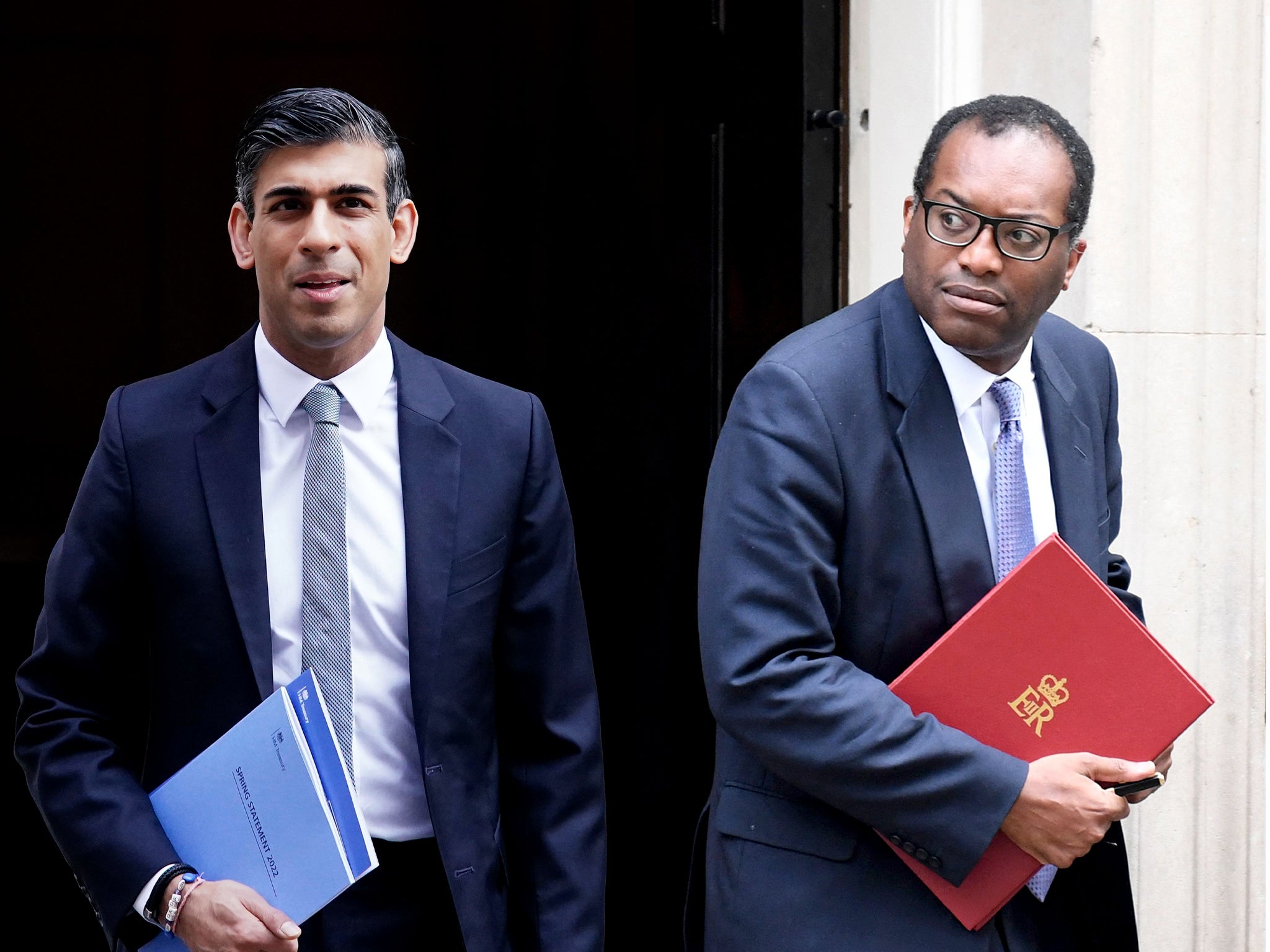Tensions over cost of living surface, as Kwarteng sets face against ‘arbitrary’ windfall tax on energy firms
Asda boss warns government has been ‘slow’ to react to rising prices

Your support helps us to tell the story
From reproductive rights to climate change to Big Tech, The Independent is on the ground when the story is developing. Whether it's investigating the financials of Elon Musk's pro-Trump PAC or producing our latest documentary, 'The A Word', which shines a light on the American women fighting for reproductive rights, we know how important it is to parse out the facts from the messaging.
At such a critical moment in US history, we need reporters on the ground. Your donation allows us to keep sending journalists to speak to both sides of the story.
The Independent is trusted by Americans across the entire political spectrum. And unlike many other quality news outlets, we choose not to lock Americans out of our reporting and analysis with paywalls. We believe quality journalism should be available to everyone, paid for by those who can afford it.
Your support makes all the difference.Cabinet divisions over the cost of living crisis have been exposed, as business secretary Kwasi Kwarteng argued firmly against an “arbitrary” windfall tax on energy firms just days after Rishi Sunak indicated he was ready to consider the move.
Inflation and the cost of living have emerged as the key issues for crunch local elections across Britain on Thursday, with opposition parties saying a windfall tax could help ease the burden of soaring gas and electricity bills on families.
Liberal Democrats today issued a demand for an emergency tax cut in the Queen’s Speech, scrapping £600 a year from the tax burden on the average family by reducing the main rate of VAT from 20 to 17.5 per cent for the next 12 months.
Meanwhile, Asda boss Stuart Rose said the government and Bank of England had been “slow” in recognising the threat of inflation and taking action to counter it.
Lord Rose said supermarkets were facing a “new level of costs” because of factors like the Ukraine war – the country produces a large share of the world’s vegetable oil and feed for chickens – and the near-shutdown of areas of China impacted by Covid. He said there was more the government could do to “cut out every extra cost” by streamlining regulations.
It was clear increased prices “won’t go down” over the coming years, Lord Rose told BBC One’s Sunday Morning. “What we are now going to have to think about is, is that going to have a long-term effect on inflation - because then will we have a wage spiral - or won’t we?”, he added. “The converse side of that is we could end up, if we have no growth in the business, having stagflation. They are both evil and the government has got a very difficult and tricky road to navigate.”
Mr Kwarteng dismissed calls for an emergency budget to implement a new package of immediate help for struggling families, but he stressed that the decision was for Mr Sunak to take.
The chancellor has signalled support for a windfall tax on energy firms if they failed to use their profits – hugely inflated by the high price of oil and gas – for the benefit of the UK. “If companies aren’t going to make investments in our energy security, of course that’s something I’d look at,” he told the Mumsnet website.
But Mr Kwarteng – who has written to the companies urging them to reinvest profits in the UK economy – today set his face firmly against a tax. “I’ve never been a supporter of windfall taxes,” he told Sky News’s Sophy Ridge on Sunday. “I’ve been very clear about that publicly. I think they discourage investment.”
And he later told the Sunday Morning programme: “We want to encourage investment in the North Sea, we want to have domestic sources of supply, and if you are asking a company to invest in North Sea gas, which we need for new technologies as well, it doesn’t make much sense to me to then hit them with a windfall tax which is arbitrary and unexpected. I don’t think that is the right way.”
However, he acknowledged that he could not rule out the chancellor opting for a windfall tax as he comes under growing pressure to help families increasingly struggling to pay bills. “He has to have a much wider view of the entire economy,” said Mr Kwarteng. “Every chancellor that I can remember has always said every option is on the table. That’s a reasonable thing for a chancellor to say.”
Labour leader Keir Starmer said a one-off tax on oil and gas “super profits” could deliver an immediate £600 reduction in average annual energy bills. “We are not talking about taxing the profits they expected to make,” Sir Keir told Sky News. “This is the profits they didn’t expect to make. I tell you this: £600 help with energy bills for those that need it will be desperately needed and welcomed across the country.”
Sir Keir said the cost of living has been the “number one issue” on the doorstep while campaigning for the local elections, adding that the Conservatives have said “absolutely nothing” about it.
Meanwhile, Lib Dem leader Sir Ed Davey said the spike in prices meant the Treasury was forecast to take in £39bn more in VAT over the coming four years than had been predicted last year. He urged Mr Sunak to put £600 into ordinary families’ pockets by cutting the rate of the purchase tax in “a cost of living Queen’s Speech”.
Join our commenting forum
Join thought-provoking conversations, follow other Independent readers and see their replies
Comments